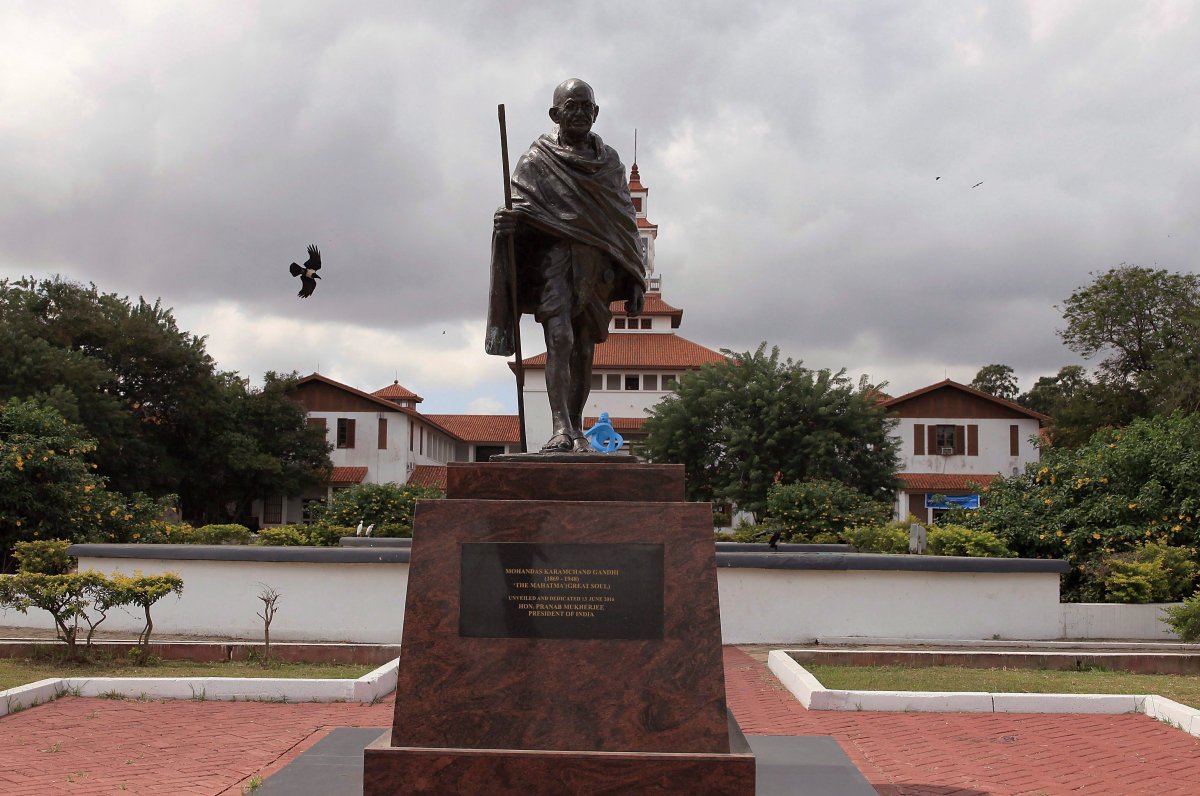A statue of Mahatma Gandhi has been removed from the University of Ghana’s campus after an outcry over his “racist” comments towards Africans.

The statue of the Indian independence leader was erected two years ago in Accra, Ghana’s capital. It was unveiled by India’s former president Pranab Mukherjee.
The statue was removed in the middle of the night Tuesday.
Professors at the university began a petition against the statue shortly after it was first unveiled. The petition has since gained over 2,000 signatures.
WATCH: Protesters decry statue of Gandhi in Davis, California

The petition claims Gandhi was a racist, citing his writing over the years, in which he said Indians were “infinitely superior” to Africans, whom he called “kaffirs,” a racist slur at the time of his writing.
Gandhi wrote in 1896: “Ours is one continual struggle against a degradation sought to be inflicted upon us by the Europeans, who desire to degrade us to the level of the raw Kaffir whose occupation is hunting and whose sole ambition is to collect a certain number of cattle to buy a wife with and, then, pass his life in indolence and nakedness.”
The petition also notes that the statue of Gandhi is the only historical statue in the university, with no other statues of the nation’s own heroes or heroines.
The existence of the statue also created a problem for lecturers, who were teaching his “uncharitable” attitudes towards the black race, while he was being glorified on the campus, according to the petition.
Gandhi is best known for leading the non-violent resistance to British colonial rule in India. He was assassinated in 1948.
He lived and worked in South Africa from 1893 to 1915 as a lawyer, which was when he wrote unfavourably of Africans.




Comments